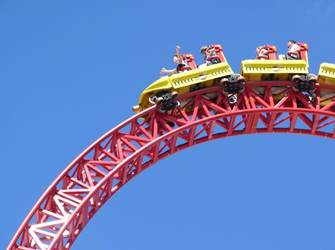
The Caregiver Roller Coaster

There is a well-said quote by Bob DeMarco, Alzheimer caregiver support specialist: “(Dementia) caregivers ride the world’s biggest, fastest, scariest emotional roller coaster every day.”
How challenging is it to go through the highs and lows of our emotions each and every day? It can start to take its toll on one’s body, mind and spirit. Caregivers tend to put their focus on the person living with dementia and less on themselves and their needs. Being able to focus on what these emotions are and the rights of a caregiver can help reduce that feeling of being on that roller coaster with its ups and downs.
Caregivers have rights and choices for themselves in how they respond to their person. The Caregivers Bill of Rights says it best:
As a caregiver, I have the right . . .
- To take care of myself. It is not an act of selfishness. It will give me the capacity to take better care of my loved one.
- To seek help from others even though my person may object. I recognize the limits of my own endurance and strength.
- To maintain facets of my own life that do not include the person I care for, just as I would if he or she were healthy. I know that I do everything that I reasonably can for this person, and I have the right to do some things for myself.
- To get angry, be depressed, and express other difficult feelings occasionally.
- To reject any attempt by my person (either consciously or subconsciously) to manipulate me through guilt, anger, or depression.
- To receive consideration, affection, forgiveness, and acceptance for what I do for my person for as long as I offer these qualities in return.
- To take pride in what I am accomplishing and to applaud the courage it has sometimes taken to meet the needs of my person.
- To protect my individuality and my right to make a life for myself that will sustain me in the time when my person no longer needs my full-time help.
- To expect and demand that as new strides are made in finding resources to aid physically and mentally impaired older persons in our country, similar strides will be made toward aiding and supporting caregivers.
It is important for caregivers to refer to this list often to help them navigate the ups and downs of caring for a person with dementia, and help ease the twists and turns of the experience.